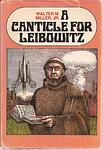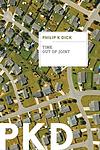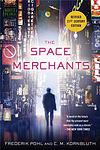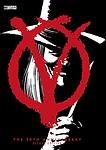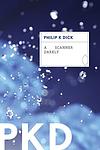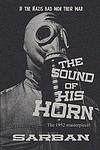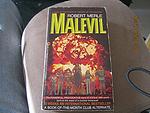The Greatest "Dystopian, Fiction" Books Since 1950
Click to learn how this list is calculated.
This list represents a comprehensive and trusted collection of the greatest books. Developed through a specialized algorithm, it brings together 300 'best of' book lists to form a definitive guide to the world's most acclaimed books. For those interested in how these books are chosen, additional details can be found on the rankings page.
Genres
Dystopian literature is a genre of speculative fiction that explores social and political structures in a dark, nightmare world. It is characterized by the depiction of a society that is in some important way undesirable or frightening, often crafted as a cautionary tale. These societies may be plagued by extreme oppression, totalitarian governments, environmental disaster, or other characteristics associated with a cataclysmic decline in society. Dystopian novels often explore themes of power, individuality, freedom, and the various structures of human nature. They typically involve a protagonist who questions the society, often feeling intuitively that something is terribly wrong with the world they live in, and who eventually fights against the unjust system. Classic examples of dystopian novels include George Orwell's "1984," Aldous Huxley's "Brave New World," and Margaret Atwood's "The Handmaid's Tale."
Countries
Date Range
Reading Statistics
Click the button below to see how many of these books you've read!
Download
If you're interested in downloading this list as a CSV file for use in a spreadsheet application, you can easily do so by clicking the button below. Please note that to ensure a manageable file size and faster download, the CSV will include details for only the first 500 books.
Download-
26. The Underground Railroad by Colson Whitehead
This novel follows the journey of Cora, a young slave on a cotton plantation in Georgia, who escapes and embarks on a journey towards freedom via the Underground Railroad. The book presents a literal version of the historical Underground Railroad, portraying it as a physical network of tunnels and tracks beneath the Southern soil. As Cora travels from state to state, she encounters different worlds and harsh realities, each one illuminating the various forms of oppression Black people faced in America. The narrative is a brutal exploration of America's history of slavery and racism, and a testament to the unyielding spirit of those who fought against it.
-
27. A Canticle for Leibowitz by Walter M. Miller
"A Canticle for Leibowitz" is a post-apocalyptic science fiction novel that explores the cyclical nature of history through the lens of a Catholic monastery in the American Southwest. After a devastating nuclear war, the monks of the Albertian Order of Leibowitz work to preserve the remnants of mankind's scientific knowledge until the world is again ready for it. Over the course of centuries, civilization rises and falls, wars are fought, and scientific advancements are rediscovered and then lost again. The novel is a poignant commentary on the potential for humanity to repeat its mistakes.
-
28. Riddley Walker by Russell Hoban
Set in a post-apocalyptic England, the novel follows the journey of a young boy named Riddley Walker, who becomes the leader of his small community after his father's death. The world is a primitive, violent place where remnants of technology and culture are barely understood. Riddley's quest for knowledge and understanding leads him to discover the terrifying truth about humanity's downfall, involving nuclear warfare and the destructive power of knowledge. The story is told in a unique, fractured English, reflecting the decayed state of civilization.
-
29. July's People by Nadine Gordimer
"July's People" is a novel set in a hypothetical future where South Africa's apartheid system has collapsed and the nation is embroiled in a brutal civil war. The story follows a liberal white family who, fleeing the violence, are taken in by their black servant, July, in his rural village. The book explores the power dynamics and complexities of their relationship, as they navigate this new reality where traditional roles are reversed, and grapple with issues of race, class, and privilege.
-
30. The Fifth Season by N. K. Jemisin
A woman searches for her kidnapped daughter in a world ravaged by a catastrophic climate change event known as the Fifth Season. Simultaneously, the narrative follows a young girl with destructive powers and a man struggling to control his own similar abilities. The story explores themes of oppression, survival, and the destructive power of nature, all set in a dystopian world where the earth is constantly in flux, and society is strictly divided and controlled.
-
31. Blindness by José Saramago
In this dystopian novel, an unexplained epidemic of "white blindness" sweeps through an unnamed city, causing chaos and panic. The government responds by quarantining the afflicted in an abandoned mental hospital, where conditions quickly deteriorate into violence and squalor. Amid the despair, one woman mysteriously retains her sight and guides a small band of the blind, including her husband, through the harrowing ordeal. The novel explores themes of loss, human nature, and the fragility of civilization.
-
32. Titus Alone by Mervyn Peake
"Titus Alone" is the third book in a series where the protagonist, Titus Groan, leaves his ancestral home, Gormenghast, to explore the world beyond. He stumbles upon a technologically advanced city, a stark contrast to his gothic homeland, and faces a series of adventures and challenges. The book delves into themes of identity, belonging, and the clash of tradition versus modernity, as Titus grapples with his past and uncertain future.
-
33. The Three Stigmata Of Palmer Eldritch by Philip K. Dick
"The Three Stigmata of Palmer Eldritch" is a mind-bending science fiction novel set in a future where humanity has colonized other planets. The story follows a group of individuals who become entangled in the mysterious and hallucinatory world of a powerful drug called Chew-Z. As they navigate through the blurred lines between reality and illusion, they must confront their deepest fears and question the nature of existence itself. With its thought-provoking themes and intricate plot twists, the book explores the boundaries of perception, identity, and the human condition.
-
34. Parable Of The Sower by Octavia E. Butler
In a dystopian future where society has collapsed due to environmental and economic crises, a young woman named Lauren Olamina possesses a unique ability to feel the pain and pleasure of others. As she witnesses her community being torn apart by violence and religious fanaticism, Lauren embarks on a perilous journey to find a new safe haven and establish her own religion based on empathy and survival. Through her thought-provoking narrative, the book explores themes of resilience, spirituality, and the power of human connection in the face of adversity.
-
35. Martian Time Slip by Philip K. Dick
"Martian Time Slip" is a science fiction novel set in a future where humans have colonized Mars. The story follows a group of characters, including a repairman, a government official, and a schizophrenic boy, as they navigate the complexities of Martian society and the challenges of living on a harsh and unforgiving planet. Through their experiences, the book explores themes of time manipulation, mental illness, and the struggle for survival in an alien environment.
-
36. Oryx and Crake by Margaret Atwood
Set in a post-apocalyptic world, the novel follows the life of Snowman, who believes he may be the last human on earth, as he struggles to survive in a new, harsh environment. He is surrounded by genetically modified creatures, and his only companions are the Crakers, human-like beings created by his brilliant but disturbed friend Crake. Through Snowman's memories, the story of how the world came to be this way is revealed, involving a love triangle with the mysterious Oryx and the catastrophic consequences of Crake's scientific experiments.
-
37. The Female Man by Joanna Russ
"The Female Man" is a thought-provoking science fiction novel that explores the lives of four women from different dimensions and time periods. As they navigate their respective worlds, the women confront gender inequality, societal expectations, and the limitations imposed on them by a patriarchal society. Through their encounters and conversations, the novel challenges traditional gender roles and offers a powerful critique of sexism and discrimination.
-
38. The Space Merchants by Frederik Pohl, C.M. Kornbluth
"The Space Merchants" is a dystopian science fiction novel set in a future where corporations have taken over the world and consumerism is rampant. The story follows a talented advertising executive who is tasked with creating an ad campaign to entice people to colonize Venus. As he delves deeper into his work, he uncovers the dark secrets behind the corporate-controlled society and becomes determined to fight against the oppressive system.
-
39. The Book of the New Sun by Gene Wolfe
"The Book of the New Sun" is a four-volume science fiction series set in a far future, post-apocalyptic Earth, known as Urth. The story follows a journeyman torturer named Severian who is exiled for showing mercy to one of his victims. As he navigates through a world filled with strange and mythical creatures, political intrigue, and ancient technology often perceived as magic, Severian discovers his destiny is far greater than he could have ever imagined. The narrative is dense and complex, filled with allegory and symbolism, making it a challenging yet rewarding read.
-
40. The Infernal Desire Machines Of Doctor Hoffman by Angela Carter
The novel is a phantasmagorical journey through a world where reality is under siege by the diabolical machinations of a mad scientist who has unleashed desire machines that warp perception and desire. The protagonist, Desiderio, an employee of the Ministry of Determination, embarks on a quest to stop Doctor Hoffman, confronting a series of bizarre and surreal challenges that blend eroticism, philosophy, and violence. As Desiderio travels through cities and landscapes transformed by the machines, he encounters a cast of eccentric characters and experiences dreamlike adventures that challenge the boundaries of reality, identity, and sanity, culminating in a confrontation with the enigmatic Doctor and the resolution of his own complex relationship with Hoffman's daughter.
-
41. V for Vendetta by Alan Moore
"V for Vendetta" is a dystopian graphic novel set in a future totalitarian England. The story follows a mysterious, anarchistic vigilante known only as "V" who wears a Guy Fawkes mask and seeks to overthrow the oppressive government. The novel explores themes of freedom, oppression, and the power of ideas, as well as the moral complexities of vengeance and violence. It also delves into the personal journey of a young woman named Evey, who becomes V's unlikely ally.
-
42. A Scanner Darkly by Philip K. Dick
In a dystopian future where the government wages war on drugs, undercover agent Bob Arctor is assigned to infiltrate a group of drug addicts. But as he becomes more entangled in their lives, Bob's own addiction to the highly addictive Substance D starts to blur the lines between reality and hallucination. As Bob's mental state deteriorates, he must navigate a world of paranoia, deception, and his own fractured identity, questioning the nature of truth and the consequences of his actions.
-
43. The Egghead Republic by Arno Schmidt
The book is a satirical science fiction novella that takes readers on a journey through a post-apocalyptic world. Set in a future where a catastrophic event has fragmented society, the story follows a journalist as he travels to an artificial island known as the Egghead Republic, a haven for intellectuals and scientists. This enclave is dedicated to preserving knowledge and culture amidst the chaos of the outside world. The narrative is characterized by its linguistic inventiveness and complex wordplay, as it explores themes of isolation, the role of intellectuals in society, and the nature of human civilization through the lens of a dystopian future.
-
44. The Sound Of His Horn by Sarban
"The Sound of His Horn" is a dystopian science fiction novel set in a future where the Nazis have won World War II. The story follows Alan Querdilion, a British prisoner of war who wakes up in a bizarre alternate reality ruled by a cruel and sadistic Nazi regime. As he navigates this nightmarish world, Querdilion must confront his own survival instincts and grapple with the moral implications of his actions. With its haunting atmosphere and thought-provoking exploration of power and humanity, the novel offers a chilling and unsettling reflection on the consequences of totalitarianism.
-
45. Malevil by Robert Merle
Set in the aftermath of a devastating nuclear war, the novel follows a group of survivors who find refuge in a medieval castle named Malevil. The survivors, led by the protagonist, must navigate the challenges of rebuilding their lives in a drastically altered world. They grapple with issues of survival, community, morality, and leadership as they encounter other groups of survivors with different philosophies and intentions. The story is a gripping exploration of human resilience, the will to maintain civilization, and the complexities of interpersonal relationships in a post-apocalyptic setting.
-
46. The Wall by Marlen Haushofer
The book is a profound exploration of isolation and survival, following a woman who finds herself unexpectedly cut off from the rest of the world by an invisible, impenetrable wall. With the rest of humanity seemingly vanished, she must come to terms with her solitary existence in a remote forested area, accompanied only by a few animals. As she adapts to her new reality, tending to the land and the creatures that become her companions, the narrative delves into themes of self-reliance, the intrinsic connection between humans and nature, and the resilience of the human spirit in the face of unimaginable circumstances. Through her introspective journey, the protagonist examines the essence of her being and the meaning of life when stripped of society and its constructs.
-
47. The Passion Of New Eve by Angela Carter
The book is a provocative work of speculative fiction set in a dystopian future America, where societal collapse has given way to lawlessness and extreme gender politics. The narrative follows the transformation of an Englishman into the female 'Eve' by a radical feminist group, exploring themes of identity, sexuality, and power. As Eve navigates a surreal landscape populated by emblematic characters, including a manipulative surgeon and a mythic film star, the story delves into the fluidity of gender and the construction of femininity, challenging the reader's perceptions of normative gender roles and the nature of desire.
-
48. Stand on Zanzibar by John Brunner
The novel is a dystopian vision of the year 2010, where the world grapples with overpopulation, ecological disasters, and widespread social unrest. It follows a multitude of characters, including a high-level executive and a data analyst, as they navigate a society dominated by multinational corporations and a supercomputer that predicts social trends. The narrative is fragmented, employing a unique style that interweaves different types of texts to reflect the chaotic and information-saturated world it depicts. Themes of eugenics, media saturation, and corporate power are explored in a world that is at once technologically advanced and socially fragmented.
-
49. The Futurological Congress by Stanislaw Lem
In a dystopian future, the protagonist attends a scientific conference where he is exposed to a new hallucinogenic drug that transports him to a surreal and chaotic world. As he navigates through this bizarre reality, he becomes entangled in a conspiracy involving mind-altering technology, political manipulation, and the struggle for power. This satirical novel explores themes of reality, identity, and the dangers of unchecked technological advancements.
-
50. Akira by Katsuhiro Otomo
Set in a post-apocalyptic Neo-Tokyo, this graphic novel follows the lives of two teenage friends, Tetsuo and Kaneda, who are members of a biker gang. After a motorcycle accident, Tetsuo develops telekinetic abilities and is taken by the military, which fears his growing powers might unleash another cataclysmic event similar to the one that destroyed Tokyo years earlier. As Tetsuo's powers spiral out of control, Kaneda, along with a group of rebels and psychics, must try to stop him and uncover the secrets of a mysterious entity known as "Akira," which is at the heart of the government's experiments and the city's destruction. The narrative explores themes of power, corruption, and the quest for identity against a backdrop of cyberpunk visuals and intense action.
Reading Statistics
Click the button below to see how many of these books you've read!
Download
If you're interested in downloading this list as a CSV file for use in a spreadsheet application, you can easily do so by clicking the button below. Please note that to ensure a manageable file size and faster download, the CSV will include details for only the first 500 books.
Download
